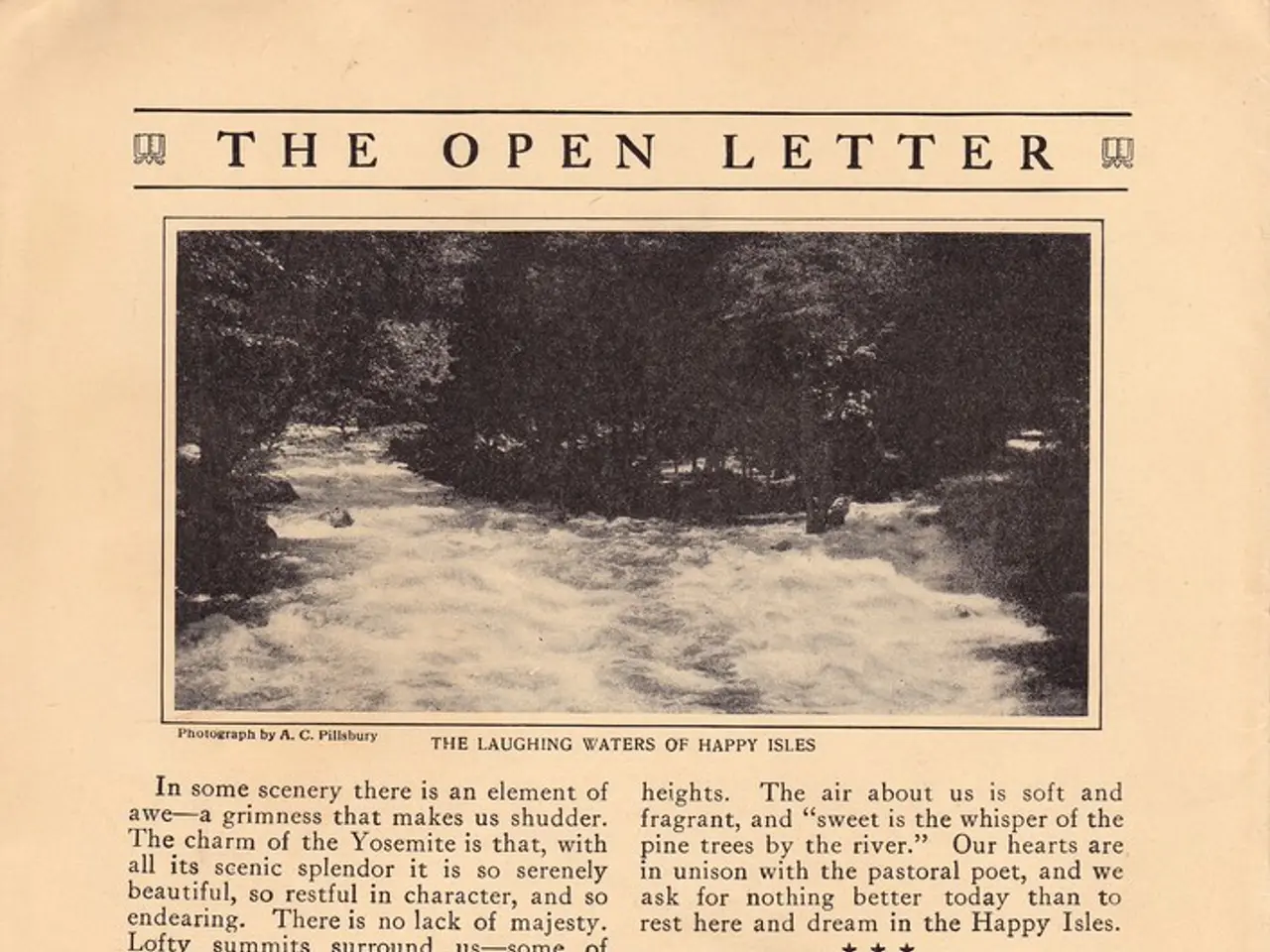Severe heatwave in Europe causes devastating wildfire, claiming two lives in Spain.
In the midst of a scorching European summer, several countries are grappling with extreme heatwaves and wildfires, while the European Union (EU) has put forward a bold plan to combat climate change.
One of the latest developments is the shutdown of one of the reactors at Switzerland's Beznau nuclear power plant to prevent excessive warming of the Aare River. The move comes as more than two-thirds of the severest heatwaves in Europe since 1950 have occurred since the year 2000, a stark reminder of the escalating climate impacts.
France's national weather agency has issued red alerts for four departments due to temperatures exceeding 40 C (104 F), and Spain's seas have been recording the hottest-ever water temperature readings for June. In response, the European Commission has unveiled proposals to reduce emissions by 90% by 2040, aiming for full carbon neutrality by 2050.
The plan, presented on July 2, 2025, prioritises domestic emission reductions across all sectors, emphasising the urgency to address the climate crisis within the EU. It also offers increased flexibility for member states in meeting targets, including the limited use of international carbon credits from projects outside Europe. This supplementary measure is intended to support, not replace, domestic action.
The proposal also allows for some flexibility in emission reduction contributions across different economic sectors to ease the transition and accommodate industrial challenges. Stakeholders stress the importance of dedicated renewable energy and energy efficiency targets alongside emission cuts, highlighting these as the fastest, cost-effective means to secure affordable energy, energy security, and societal benefits.
Environmental groups have expressed concern about the potential reliance on carbon offsets and removals, fearing they could undermine real emission cuts. The EU aims to ensure that emission trading schemes and carbon removal measures do not become loopholes but genuinely contribute to reducing emissions.
Meanwhile, the heatwave continues to take its toll. In Spain, a wildfire in Catalonia has consumed over 6,500 hectares (16,000 acres) of grain fields, with two farmers tragically losing their lives while apparently trying to flee in a vehicle. The fire, which created an enormous plume of ash and smoke that rose 14,000 meters into the sky, is considered beyond the capacity of extinction according to the regional president of Catalonia, Salvador Illa.
As Europe battles the heat, hundreds of people in the central town of Soest, Netherlands, took to the streets for a water fight with the local fire brigade to cool down. Elsewhere, the homeless population in Berlin is seeking respite from the heat at a city mission, with an estimated 8,000-10,000 people without shelter.
Catholic bishops from Asia, Africa, and Latin America recently met in the Vatican to demand climate justice, underscoring the global call for action against climate change. The EU's ambitious plan reflects this growing political will to act decisively in the face of climate emergencies while balancing economic realities and international cooperation. It signals the EU's commitment to lead global climate efforts by setting a clear and ambitious domestic target supported by pragmatic flexibility options.
- The escalating climate impacts, such as Europe's recent heatwaves and wildfires, are raising concerns in the realm of scientific studies on climate change and environmental science.
- The European Union's proposal to reduce emissions by 90% by 2040, aiming for full carbon neutrality by 2050, is a significant step in the realm of policy and legislation addressing climate change, within the broader context of politics and general news.
- As the EU works to combat climate change through policies, it is crucial to consider the role of renewable energy and energy efficiency targets in securing affordable energy, energy security, and societal benefits, a matter of significant importance in both environmental science and the broader environmental discourse.








